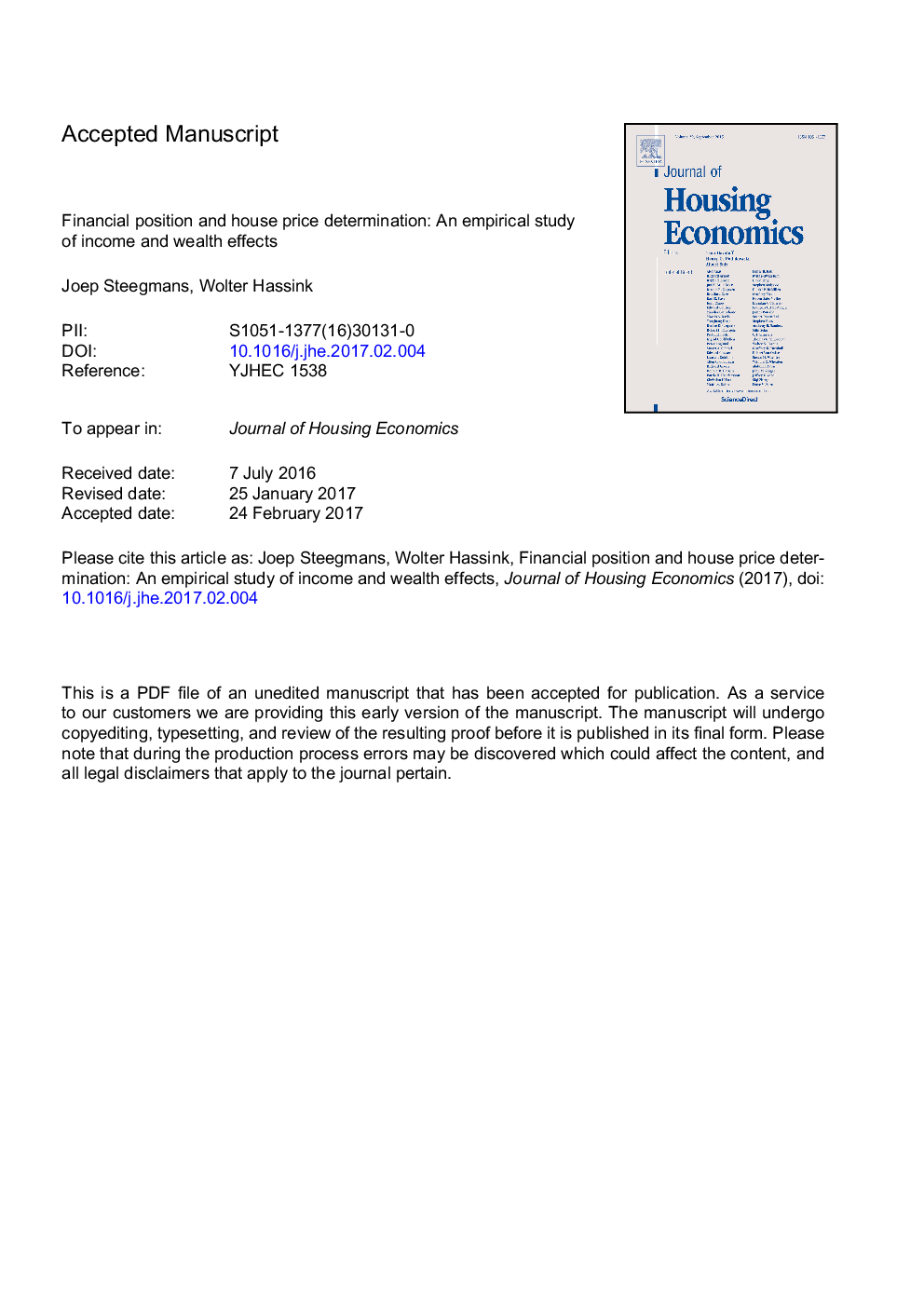| Article ID | Journal | Published Year | Pages | File Type |
|---|---|---|---|---|
| 5100849 | Journal of Housing Economics | 2017 | 37 Pages |
Abstract
This paper examines the effect of the relative financial position of buyers and sellers on house prices, distinguishing between income and wealth effects. Using administrative data from the Netherlands (2006-2010) that combine transaction data, house characteristics, and household characteristics of both buyers and sellers, the estimates indicate that a better financial position leads to higher prices for buyers and lower prices for sellers. It provides evidence that income and wealth influence housing market behavior of buyers and sellers. The results are consistent with theories that suggests that higher income and wealth lead to higher search and bargaining costs, implying that households with better financial positions invest less time and effort in search and bargaining leading to worse bargaining outcomes.
Related Topics
Social Sciences and Humanities
Economics, Econometrics and Finance
Economics and Econometrics
Authors
Joep Steegmans, Wolter Hassink,
